A year of Covid seen through the eyes of four students
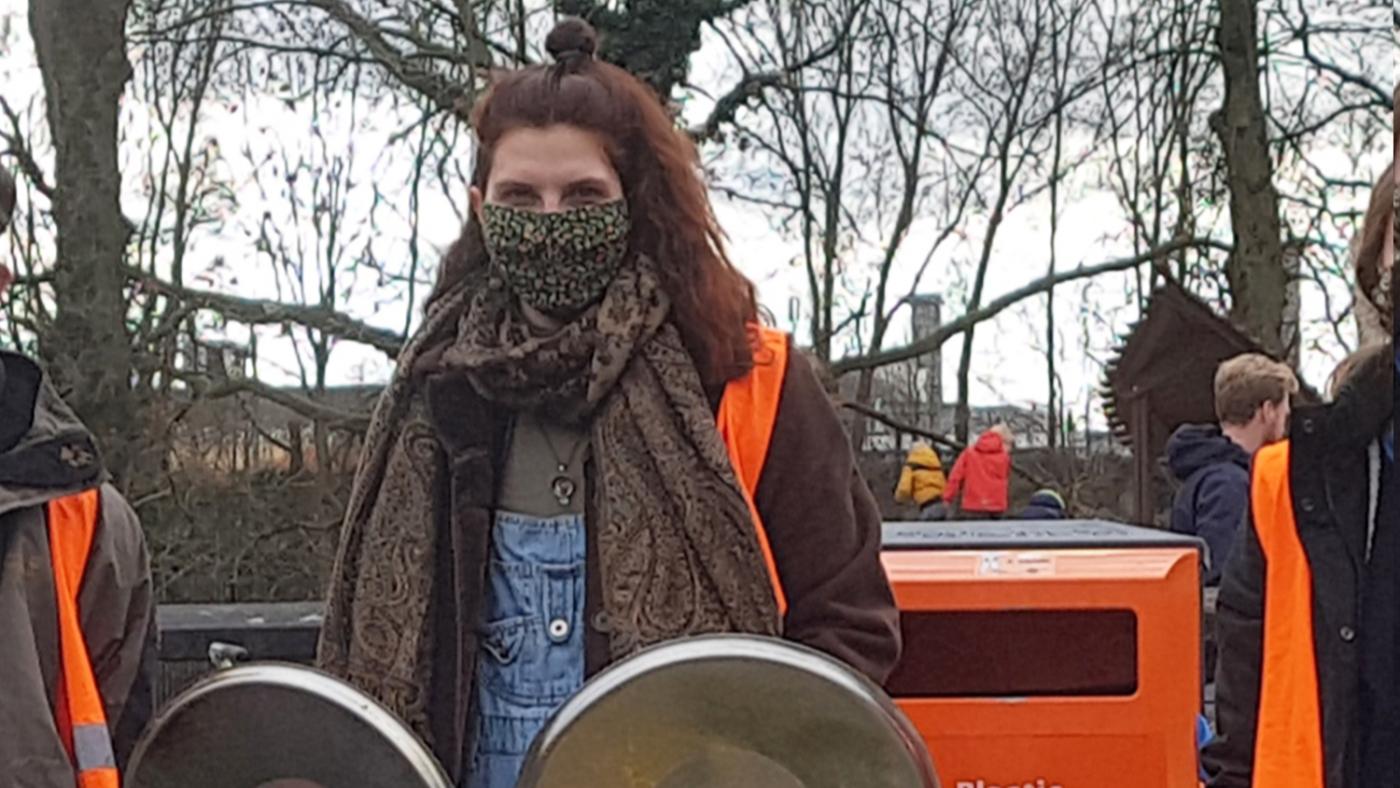
Knitting and a second study programme: Carmen, the hobbyist
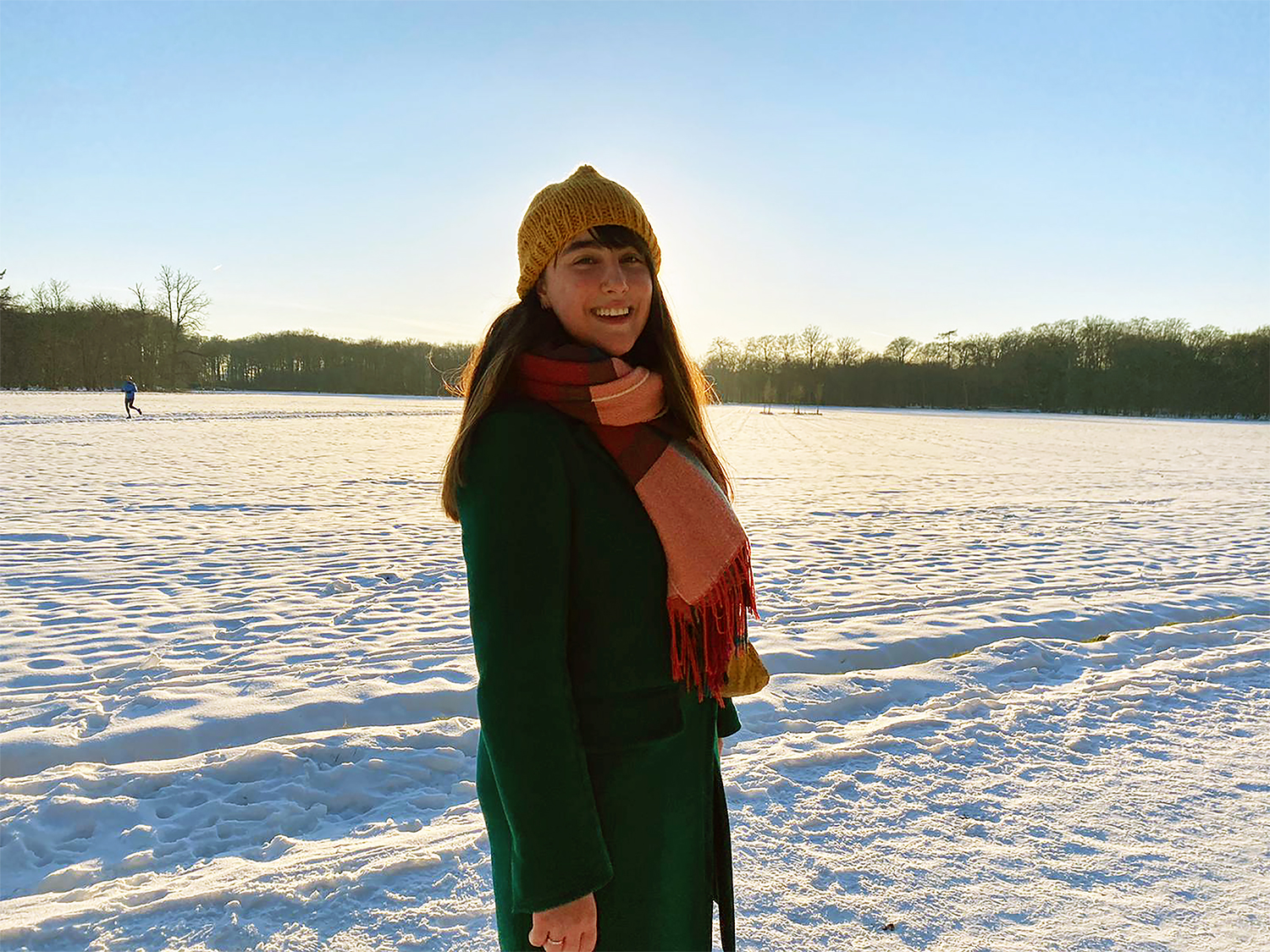
“One, two, three, four…” Carmen (20) counts on her fingers with a pensive look on her face. “Well, I think I knitted around seven hats recently. I kept three and gave away the other four”. Knitting is the newest hobby of the Pedagogical Studies student and self-titled corona hobbyist. “It’s a great cure for boredom, it makes me so happy”.
Carmen started trying out new hobbies after the very first lockdown in March 2020. “When we were suddenly not allowed to do anything, it felt as though a huge burden had been lifted. I was always doing a thousand things at the same time and then I was forced all of a sudden into a calmer routine. Unfortunately, that initial relief was short-lived and I got in a real slump. The cold winter weather arrived and life still didn't look anything like normal. That combination of circumstances hit me hard".
“I didn’t enjoy my studies anymore and I started missing all the activities I was doing before the lockdown. That’s when I decided to take it easy on my studies and do some more fun stuff like knitting, painting, and making music. That helped me feel a little better, but I still resisted getting back to my full-time Pedagogical Studies programme”.
That’s why Carmen started a second Bachelor’s this year: the ‘free school’ educational studies at the Leiden University of Applied Sciences. "This study programme makes me so happy. I’m seeing new faces on my screen and, every two weeks, I receive a lesson package. The latest one was filled with paint, clay, wool, and other craft materials. That cheers a person up!”, she says with a smile from ear to ear.
But she hasn’t completely climbed out of her slump just yet. “How I feel changes from day to day, but I do think it’s been good for me to do more things that give me energy and less things that cost me energy. That’s something I would recommend to everyone”.
Moving house and writing a protest letter: Janneke is done sitting idle
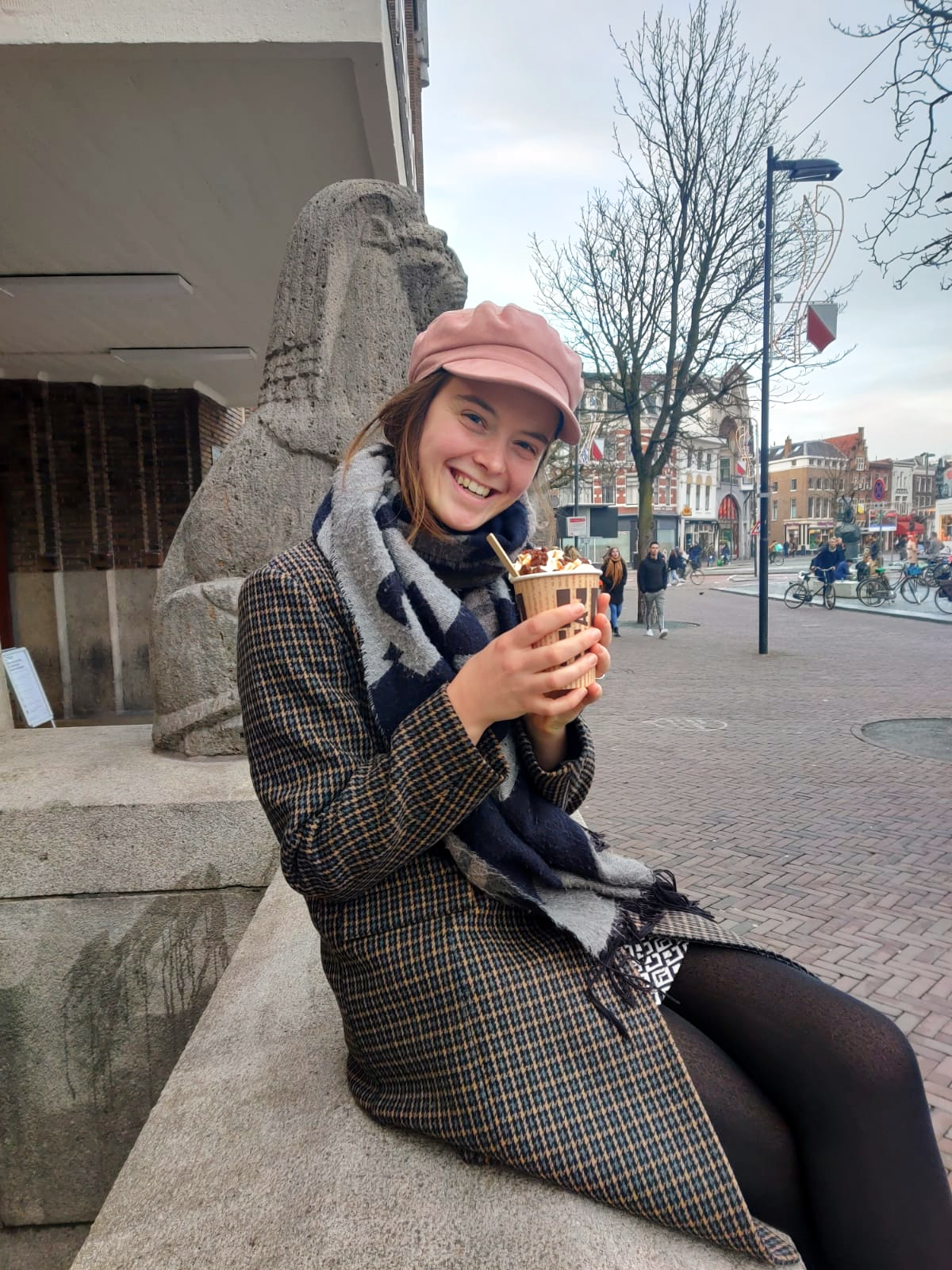
“To be honest, I’m not sure how long I can keep going like this. A year is way too long”, writes Linguistics student Janneke (21) in a letter published on Facebook after a panic attack. For her, the outlook for students has been bleak for quite a while. “I’m longing for a normal day”, she sighs. “A day with a clear beginning and end. A day on which you can smile at people and see more buildings than your student house”. That morning, when she realised just how deep that longing was, she had a panic attack.
The letter she wrote is directed at anyone who’s curious about how students are holding up in the Covid era. She argues that students are being forgotten. “During the first lockdown, there was so much solidarity. Everyone empathised with each other and took care of each other. Now, people seem to have forgotten that almost nothing has changed for students this year. Primary schools had to reopen as quickly as possible, secondary school students had to go to school as quickly as possible, but higher education students are stuck at home for a full year without any prospect of a better situation".
“They seem to assume that university students will be fine as long as they're given a discount on the tuition fees next year”, Janneke complains. “I didn’t want to stay quiet. It’s time we were allowed back at university. At a metre and a half distance, with face masks if necessary. If secondary schools can organise exams in the Railway Museum, then I’m sure something can be done for university students, too”.
Janneke lived by herself for nine months in a studio in Utrecht. “I felt lonely that entire time. All day, I was busy trying to find something to do outside. It was just me in my studio”. To escape those feelings, she went hiking. A lot. “When I hike, I run into people with whom I can exchange a smile and a greeting. That felt like the most ‘real’ social contact I had”. Since November, Janneke is sharing a flat with two other students. “It’s such a relief to have people close to me again. I’m sure I wouldn’t have been able to keep going if I'd still be living by myself”.
Peace and quiet, house parties, and board year: Petri is glad she can play volleyball again
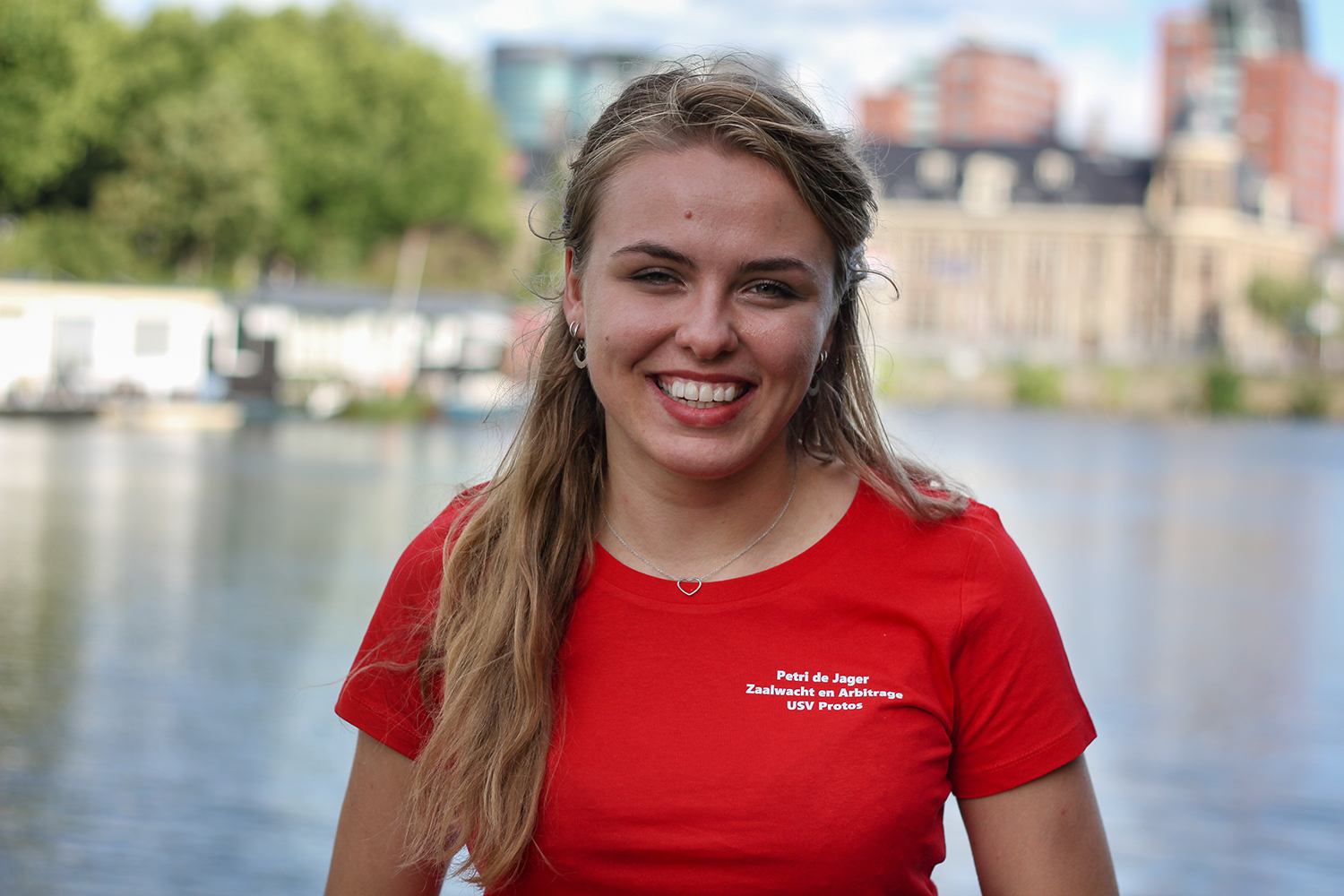
“For me, the corona measures have been both a blessing and a curse”, says Petri de Jager (21) after a second of consideration. Apart from her studies in Molecular Life Sciences, she’s a board member of volleyball association USV Protos. “My studies have always been my number one priority. I built my social life around school. This board year, I was planning on doing social activities only”, she sighs. “That didn’t happen.”
Even so, the circumstances have also brought her peace and quiet. “I has been racing and stressing out for years, trying to juggle everything – studies, friends, sports. If the smallest thing happened, it would be too much. I’d collapse. Now that I have fewer things to do, I’m more at peace, I feel a lot better. I’m even sleeping enough nowadays!”, she laughs.
“When the first lockdown was announced and we all had to leave the volleyball field, no one expected that we wouldn't be allowed to play volleyball the entire season, no one thought there wouldn’t be any drinks and parties”. Still, she’s enjoying the board life. “It’s such a great group of people. Everyone looks out for each other”. There are also plenty of parties. “I live at the IBB with fourteen housemates. With so many people in a house, it’s pretty easy to have a party”.
A smile from ear to ear appears on her face when she talks about the sports restrictions being eased. “We’re allowed to play again!” she celebrates, spark in her eyes. “The first time I was back at the beach field, I almost cried. It was so amazing to see everyone again. I hadn’t seen some of them for almost a year”. Petri thinks the current sports-related measures are clear. “We’re allowed to play volleyball outdoors, but people can’t stick around after the game. That’s much more doable than before. Because the rules were less clear at the time, I felt more like a cop than a board member".
“But now, our creative brain has been awakened, so we’re more equipped to deal with the changes. Instead of focusing on the things that are not allowed, I try to look at what is possible – and I have high hopes that more and more things will be possible in the near future”.
Internship and volunteer work: Rebeca fights for her ideals
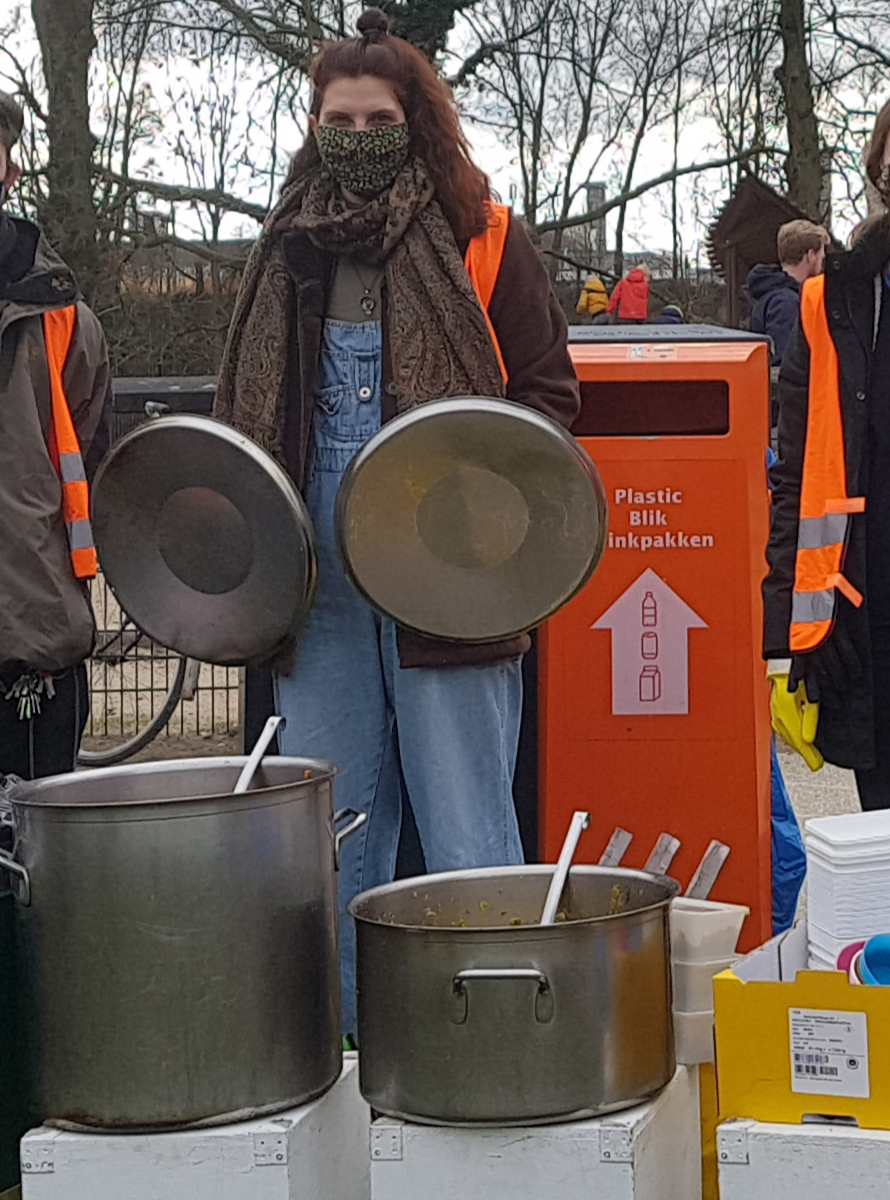
“I came here for a doctor’s appointment and I ended up staying for four months”, laughs Global Sustainability Sciences student Rebeca (22), talking to DUB from her parents’ home in a small village in Germany. “There are forests everywhere here. It's so refreshing to be in nature. The Netherlands had just gone into lockdown and I was writing my Bachelor’s thesis, so I didn’t see any reason to go back to Utrecht”. Not much later, two housemates followed her to Germany and moved in with Rebeca and her mother. “My mum loved having some life in the house again”.
Despite all the nature and proximity with her family, Rebeca returned to Utrecht after four months. “In Germany, I was completely isolated from the world. I missed my friends and wanted to fight for my ideals again”. Back in Utrecht, she started a research internship at Aseed, an organisation that opposes industrial agriculture. “Because of the Covid restrictions, I wasn’t able to work at the office and there were no social activities. Still, it was great to work on something that matters to me”. She was also able to carry on her volunteer work at Taste Before You Waste. “It’s a collective that prevents food waste. Every Friday, I pick up fruit and vegetables at different locations and then hand them out to people who can use them”.
Before the pandemic, Rebeca was also one of the organisers of Bellies not Bins, a weekly dinner at ACU. The fruit and vegetables that Taste Before You Waste was able to save were turned into a free meal for anyone who was hungry. “To me, those evenings were a way of strengthening the sense of community. Now that it’s no longer possible to do that, I’m missing that connection”.
Although Rebeca says the collective is a community, the meals now end up with different people. “Now the meals go to the solidarity fridge, a fridge that’s accessible to anyone. If anyone needs a meal for whatever reason, they can get it from there”.